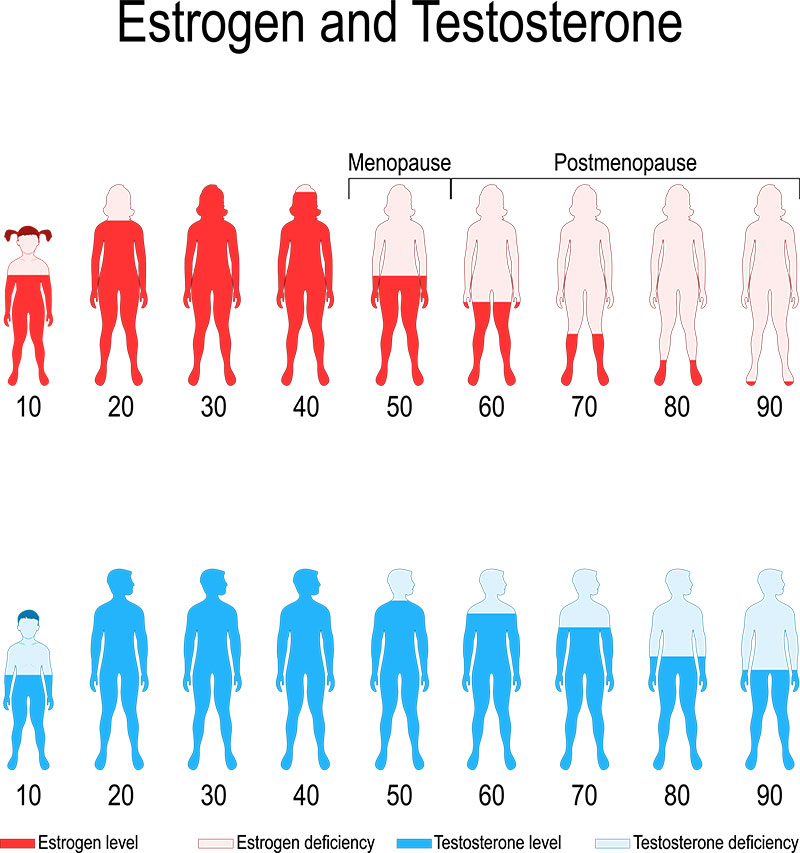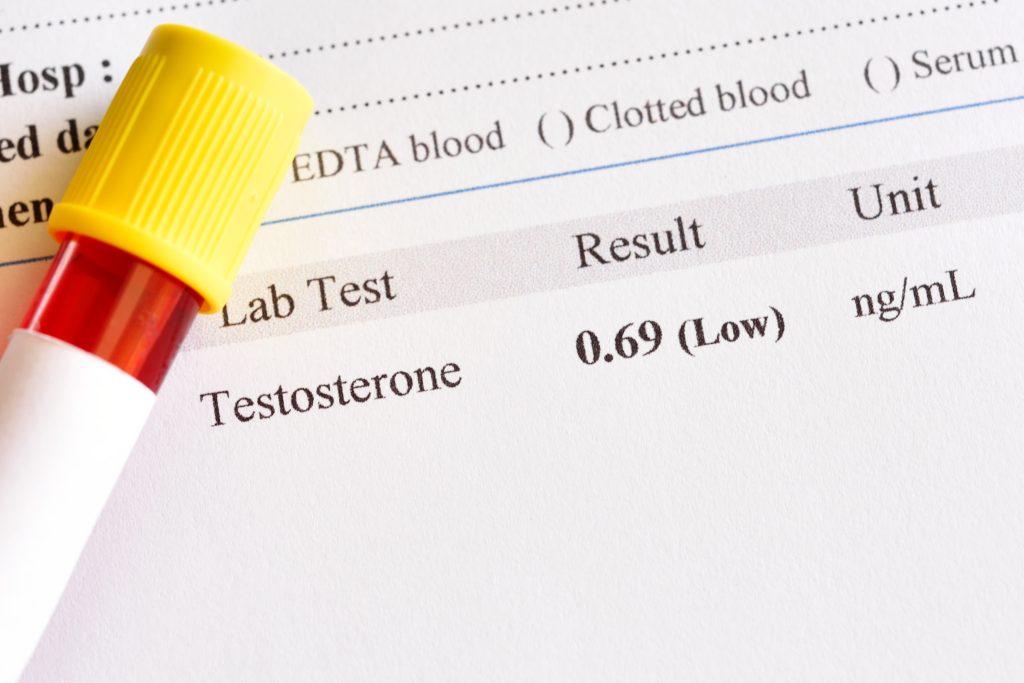Testosterone Replacement Therapy
- HOME
- /
- Testosterone Replacement Therapy
Oveview
Testosterone Replacement Therapy
An increasing number of men are facing testosterone deficiency, commonly known as "low T." Recent studies indicate that testosterone levels may decline by up to 2% annually after the age of 30, with the prevalence of low T reaching as high as 38.7% among men aged 45 and older. Consequently, there's been a rise in physicians, particularly endocrinologists, prescribing testosterone replacement therapy (TRT) to address this issue. As research advances, there's a clearer understanding within the medical and scientific communities of how testosterone levels impact longevity and overall well-being. We are now well-equipped to administer prescription testosterone safely and effectively.




WHAT IS TRT?
- Testosterone replacement therapy (TRT) is a specialized hormone replacement treatment designed to restore healthy testosterone levels in individuals experiencing low T. Conceptually, TRT operates similarly to the use of insulin in type-I diabetics. When the body lacks the natural production of a crucial hormone, it necessitates "replacement" with an external source.
- In TRT, exogenous testosterone—typically administered via injection—is employed to elevate testosterone levels back to a healthy range. Alternative forms of testosterone prescriptions, such as patches and creams, which are absorbed through the skin, also exist. While the majority of TRT recipients are over 50, younger men are increasingly proactive about having their testosterone levels evaluated, especially if they exhibit symptoms of low T, which we'll delve into later.
- Testosterone was first synthesized in a laboratory in 1935 and has since been utilized in clinical settings. Over the past decade, it has emerged as one of the most prescribed medications in the United States. Various factors contribute to the surge in TRT and the diagnosis of low T, including the aging population and advancements in understanding testosterone deficiency.
SYMPTOMS OF LOW (TESTOSTERONE)
Symptoms of low T typically manifest as a negative impact on overall well-being and health. Affected individuals often find that these symptoms worsen over time, significantly diminishing their quality of life and motivation. Common symptoms of low T include:
- Decreased libido/sex drive
- Erectile dysfunction
- Fatigue
- Muscle loss
- Increased body fat
- Depression
- Reduced testicular size
- Poor concentration
- Infertility
- Hot flashes
- Anemia
- Brittle bones
- Hair loss
- Sleep disturbances
If you experience any of these symptoms, it's advisable to undergo blood work to confirm your testosterone levels before making any decisions. We can assist you in assessing your testosterone levels and determining the suitability of TRT.


HOW DOES TRT WORK?
- Having addressed the question "what is TRT," you may wonder how it operates. In essence, TRT functions by providing the body with the necessary testosterone for proper functioning. Testosterone, the primary androgen in males and females, influences numerous biological processes crucial for health and longevity.
- For instance, low T is linked to an increased risk of type-2 diabetes, metabolic syndrome, cardiovascular disease, and various other health conditions. Additionally, inadequate testosterone levels make it challenging to build and retain muscle mass, as testosterone plays a pivotal role in muscle protein synthesis.
- Therefore, when the body fails to produce adequate testosterone independently, its health deteriorates until the issue is rectified. TRT addresses this by restoring testosterone levels to a healthy range, gradually alleviating the symptoms of low T. Once a stable baseline dose is established, individuals undergoing TRT often report improved energy levels, vitality, and overall quality of life. However, TRT is not an immediate solution, and some may not experience noticeable improvements for 1-2 months.
- Testosterone is a regulated substance, necessitating a prescription for legal use in the United States and many other countries.
Benifits
BENEFITS OF TRT
The final outcome depends on a variety of factors, but most studies report a healing rate up to 85%. More than 80% of patients report improvement even after just one treatment. More severe or chronic degenerative conditions may take longer to heal, so be patient and allow up to 12 weeks to evaluate your outcome as the biologic response and stem cell remodeling can be active up to 12 weeks after your final treatment and varies according to patient’s age and other comorbidities. Lifestyle can also have a profound effect on healing outcomes.
- Increased libido
- Improved erectile function
- Enhanced energy and cognitive function
- Heightened vitality, motivation, and confidence
- Better appetite regulation
- Improved sleep quality
After several months of TRT, additional benefits may emerge, such as:
- Enhanced muscle growth and recovery
- Fuller facial hair
- Improved bone and joint health
- Increased red blood cell production
- Enhanced immune function
It’s crucial to understand that TRT isn’t a universal solution; individual responses may vary. Therefore, focus on the long-term outcomes of TRT rather than expecting immediate results.

RISKS OF TRT
- Like any medication, continuous use of testosterone may entail some side effects. However, these are typically mild, given that the objective is to maintain testosterone levels within a healthy range. Should testosterone levels exceed the optimal range, adjustments to the dosage can mitigate potential side effects.
- Contrary to misconceptions, TRT's risks are relatively limited. Some individuals may experience oily skin, increased body hair growth, and testicular shrinkage after prolonged TRT use. However, these side effects are manageable and may diminish as the body acclimates to TRT.
- It's imperative to refrain from altering TRT protocols as prescribed. If you are experiencing unwanted side effects, please discuss with our staff.
KEY TAKEAWAYS
- In summary, TRT is a safe and effective hormone replacement therapy commonly employed to treat low T in males. By restoring testosterone levels to a healthy range, TRT can significantly improve the quality of life for individuals with low T. If you suspect you have low T based on the symptoms outlined in this article, seek professional evaluation and consider undergoing TRT under the guidance of a qualified healthcare provider.

